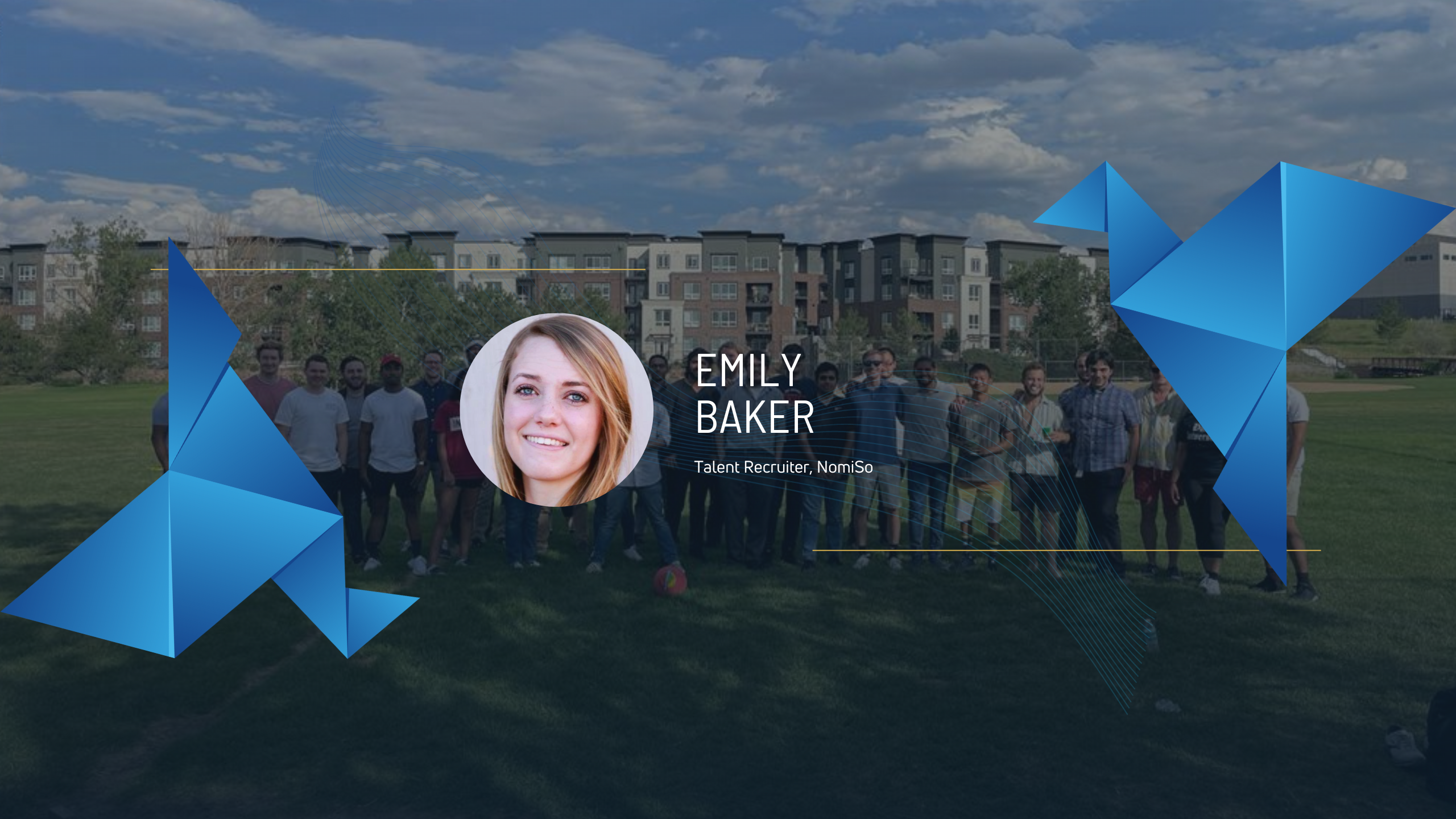Talent acquisition is a task inherently focused on people. Their abilities, ways, ticks, fears, loves, and most of all, ability to mesh with a team, all go into hiring people who can realize the most potential for themselves, their teams, and their collective goals. While standardizing human traits, personalities, and patterns is more aptly done by a psychologist or mental health professional, using guidelines and reminders to help our team excel at hiring the highest quality talent is a worthy endeavor.
What is EQ?
Oftentimes, these traits are referred to as “emotional quotient”, or EQ. Sociability, camaraderie, and eq are relevant to software engineers in all aspects of their daily lives. Teams with higher eq work better together, accomplish more together, and move more quickly throughout their tasks.
EQ has been an extremely important aspect of what we search for in team members. What is NomiSo at its core? It’s people, and generally, it is less important how smart each person is, but how well the entire team functions as a whole and how “smart” a collective group can work towards solutions. When problem-solving, eq comes in handy just as much as the standardized forms of intelligence do.
We specifically look for soft skills when hiring for all roles. Communication skills, being easy to talk to, and the ability to hold in-depth, deep, and often vulnerable conversations, are all traits we find attractive. Furthermore, the desire to take initiative, knowing when, how, and where to step in and lend a hand. For so many developers, the initiative of jumping head first into a project can be the difference between finding a solution and being stuck. Oftentimes, the hardest part can be just starting. When working with a team, the motivation or desire to start may be lacking, but if there is emotional intelligence utilized by team leaders, eq can fill in any cracks in productivity by understanding team needs and dynamics.
Setting the example
For leaders, being self-aware enough to figure out their strengths, weaknesses, and blind spots of not only themselves but their team can mean better decision-making. Looking at a situation for not exactly what is the output, but the journey along which team members travel before landing at their destination, or solution, means a more accurate interpretation of team success.
While it seems as though a high level of general intelligence means a higher chance of success in the coding world, the correlation between EQ and coding success is rarely discussed. With higher social skills often come better communication skills. While coding is broken down into languages, better social skills lead to better development on a micro scale, and even more team success on a macro scale.
If we find a candidate who is able to work through problems effectively and vocalize their pain points or problems that they are running into, we have faith that regardless of their current technical skill set, they will have tons of room for growth in the future. As they grow more technically, their social skills often become more attuned as well. As their knowledge in the field rises, so does the necessity to explain complex concepts with ease.
How do we look for these traits when we are hiring?
Using EQ as a tool in interviews is crucial. Making sure that interviews are a chance for interviewees to showcase their EQ, social skills, and communication skills, while feeling comfortable doing so, is extremely important. As a recruiter, my job is to act as a facilitator for a candidate to feel as free and true to themselves as possible. If a candidate feels as though they need to put on an act in the interview, their long-term success with NomiSo will be extremely limited. Being friendly, smiling, open, and vulnerable is a great way to gauge eq. Multiple interview steps can be helpful, especially if technical skills are required for a role. This way, certain interviews can be used to find whether a candidate is a match in terms of EQ and IQ.
Every human is different, and that means standardized questions are often a poor indicator of the answers that we are trying to find. Having a high EQ as a recruiter allows flexibility, on-the-go decision-making, and fluidity to be apparent in an interview interaction. In many cases, high-level talent is interviewing the company just as much as they are being interviewed. To empower future workers, give empathy to the fact that both parties are trying to gauge their interest levels. With the knowledge that both parties can succeed in a working relationship, and that neither is getting the short end of the stick, teams will be more likely to create great work.
Empowerment through the hiring process.
The way someone feels about their job is just as important as how someone does their job. In a lot of cases, and especially for those with high emotional intelligence, how someone feels about their job IS how they do their job. Every level of a company contains crucial members, all working towards one common goal. Whether C-Suite or entry-level employees, each group of stakeholders can benefit from EQ in the workplace. For leaders, hiring for EQ means a better understanding of this common goal.
As humans, we love to separate, categorize, label and put boxes on the different scopes of our life. Why? Well, it seems as though each interaction requires a different approach – while true, these approaches should all retain the same values. Whether in an interview, at work, or with an old friend, using emotional intelligence and awareness to support another person will lead to the best outcome. By creating an environment where vulnerability, freedom to express ideas, and genuine creativity are supported, our collective goals will become laughable, and new ones will take their place.
IS YOUR COMPANY LOOKING FOR DIGITAL SOLUTIONS?



